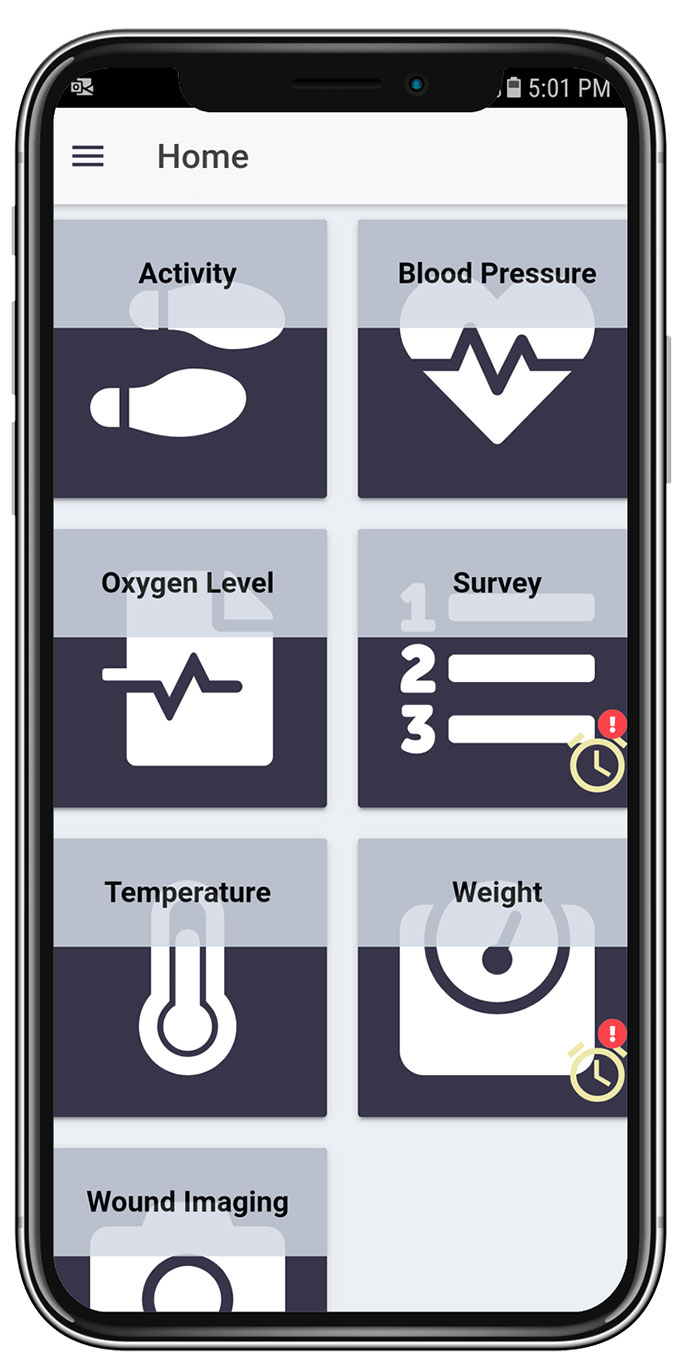Postpartum Telehealth and Remote Patient Monitoring for Preeclampsia
At the University of Chicago Medicine, our maternal-fetal medicine specialists are committed to helping you prioritize and guard your health at an important and exciting, yet challenging time — during postpartum recovery.
With telehealth and remote patient monitoring, we can continue to treat our high-risk patients even after they’ve been discharged to return home following delivery. Our goal is to diagnose and treat postpartum preeclampsia as quickly as possible in patients who are most at risk, including patients diagnosed with:
- Chronic hypertension
- Gestational hypertension
- Preeclampsia/eclampsia
- Superimposed preeclampsia
All Family Birth Center patients who fit these criteria are encouraged to enroll in the Postpartum Telehealth and Remote Patient Monitoring Program. Our team offers exceptional support and expertise to help you manage your risk during recovery from the convenience of your home.
What Is Postpartum Preeclampsia?
Postpartum preeclampsia is persistent high blood pressure that develops after childbirth. It is a serious condition that can happen up to six weeks after delivery. Even if you have no history of high blood pressure, you can still develop postpartum preeclampsia. Left undiagnosed or untreated, postpartum preeclampsia can have a major impact on your health.
Q&A: What you need to know about preeclampsia before — and after — pregnancy
About the Program
The program is six weeks long. By participating, you’ll be empowered to play an active role in your postpartum care and recovery by:
- Learning to recognize the early signs of preeclampsia
- Taking and recording your blood pressure
- Keeping track of your medications
- Communicating virtually (via telehealth using phone visits) with your postpartum care team

How It Works: Better Health in 4 Simple Steps
As part of your care plan, follow these four important steps every day. By using your smartphone and the PatientConnect Mobile app, you can easily stay on top of your postpartum recovery from the comfort of your home or whatever location you choose.
- Check your blood pressure at least twice a day — once in the morning before taking your medication and once in the evening after taking your medication.
- Take your medications as prescribed.
- Answer daily surveys to report any symptoms you have.
- Track your physical activity, including walking, yoga and more.
Our team will monitor your responses and contact you, the UChicago Medicine maternal-fetal medicine postpartum telehealth team and your obstetrical provider if needed to ensure you have a safe and speedy recovery. All data from your blood pressure and survey responses are automatically added to your medical records.
Additionally, each patient receives:
- A Bluetooth blood pressure cuff that transfers your blood pressure recordings to your phone app
- A postpartum preeclampsia medical alert bracelet
Postpartum Remote Patient Monitoring Resources
Our staff will help you download the PatientConnect Mobile App before you leave the hospital.
Follow these instructions if you’re unable to download the app at the hospital or to download the app on a different mobile device:
- Open the Apple App Store or Google Play Store on your mobile device and search the store for PatientConnect Mobile.
- Click the GET button next to the app to begin downloading. When downloaded, open PatientConnect Mobile and enter the login code, which will be provided by the UCM Telehealth Team before you leave the hospital.
When you are logged in, you are ready to begin!
Take your blood pressure two times a day, once in the morning before taking your medication and once again in the evening after taking your medication. Follow the instructions below to make sure you have an accurate recording of your blood pressure.
- Do not smoke, exercise, drink caffeine, or drink alcohol within 30 minutes before taking your blood pressure.
- Use the restroom before taking your blood pressure.
- Sit at a table, in a chair with a back.
- Rest in a chair for at least five minutes before taking your blood pressure.
- Do not talk, read, or listen to music when taking your blood pressure. Relax and stay still.
- Keep legs uncrossed and flat on the floor.
- For a medical emergency, call 911.
- If your blood pressure top number is 160 or greater or your bottom number is 110 or greater, the app will trigger an alert and a phone call to the RPM team. You call also call the Postpartum Hypertension Clinic at (773) 702-6118 if you do not get a response within 30 minutes.
